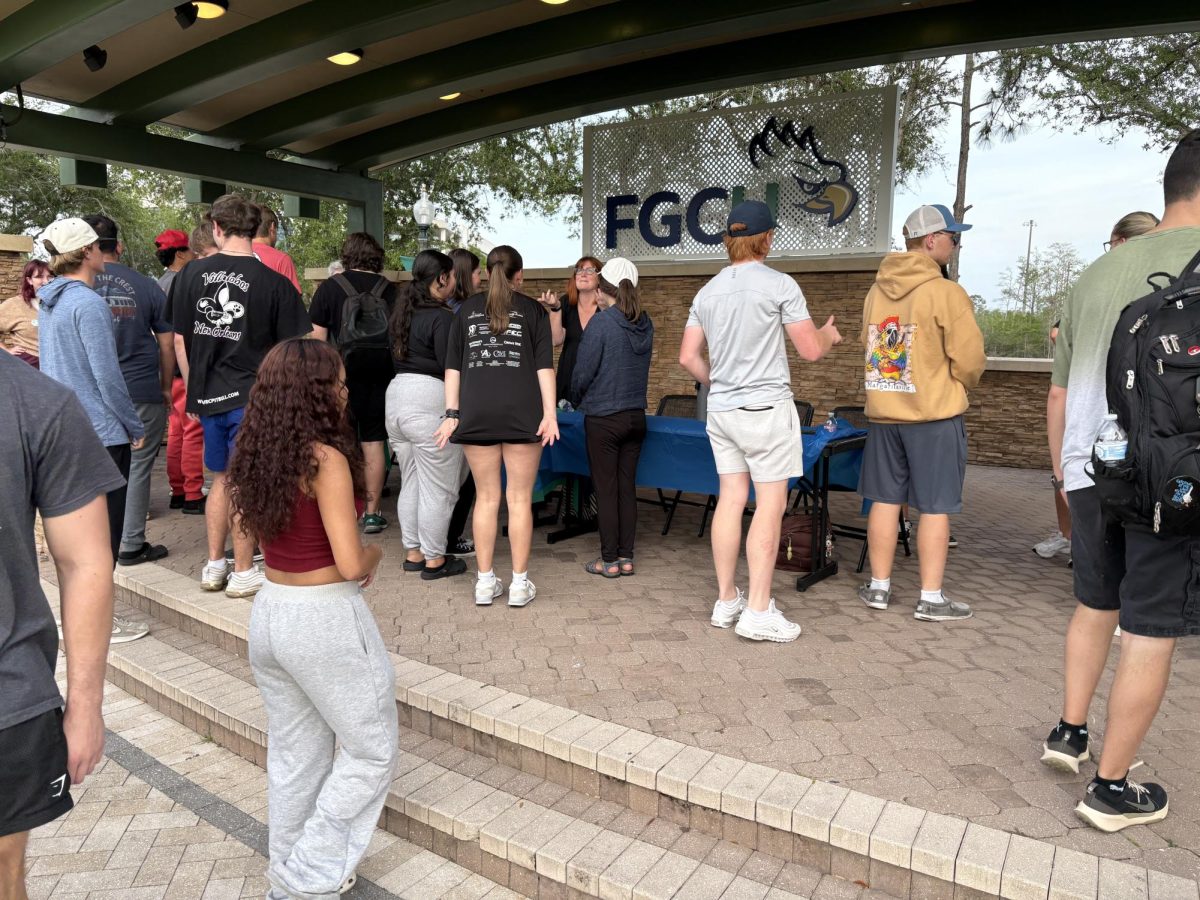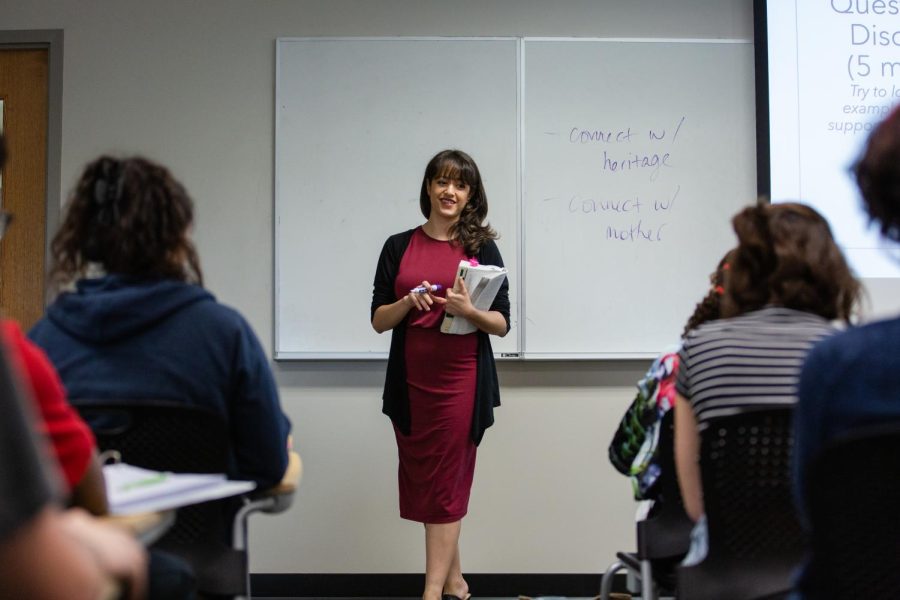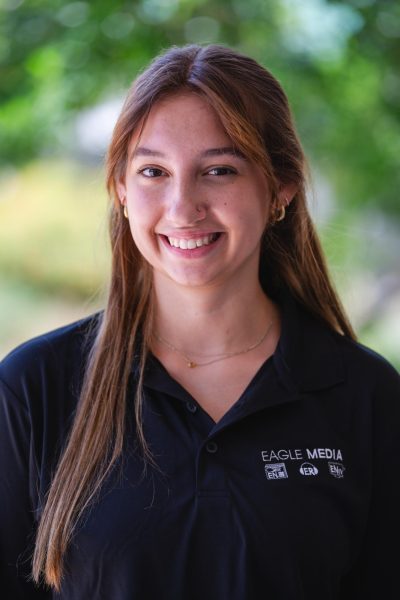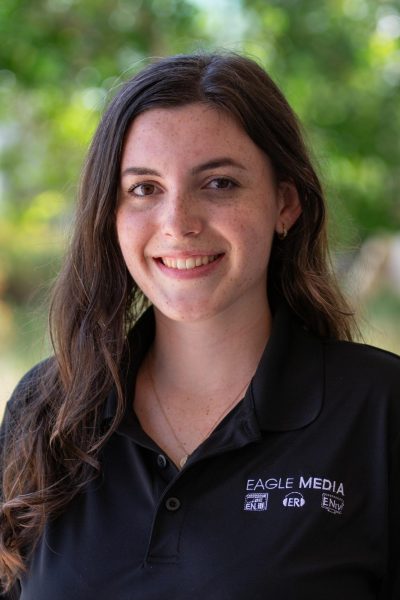The Power of Literature Keeps Diversity, Equity and Inclusion in the Classroom
Dieppa speaks to her intro to literature class about The Joy Luck Club, a novel focusing on Chinese immigrant families in the United States on Jan. 26, 2023.
January 30, 2023
Empathy, the human experience, and the power of literature: three things that one FGCU professor, Allison Dieppa, values in and outside the classroom.
Dieppa has been with FGCU since 2011, teaching in the Department of Language and Literature. She teaches composition I and II, professional writing, introduction to literature, and occasionally, introduction to British literature. Creating a safe space for her students is something Dieppa strives to emulate in all her courses.
“As a student myself, I didn’t feel represented in the things that we were reading. I didn’t feel represented in the classroom. It was actually in a classroom where I encountered discrimination for the first time, and I really never wanted any of my students to feel that way,” Dieppa said.
Growing up in North Bergen, New Jersey, Dieppa was surrounded by a variety of cultures. Her parents exposed her to how each culture embraced and expressed themselves through food, music, acting, and art. All while being exposed to the beauty of culture, Dieppa feels as if she was shielded from some of the ugliness of reality.
“It was diverse culturally, but also very sheltered because it was kind of a rough neighborhood, and I did stay inside a lot,” Dieppa said. “Books were kind of my safe place and I definitely had a very vivid imagination so I escaped into my own brain a lot.”
Dieppa was determined to forge something unique out of her English major. She attended Rutgers University for a year, then transferred to FGCU when her parents moved to Clewiston, Florida. She dabbled with the idea of becoming a lawyer but soon realized that would not suit her. Corporate seemed to be the way to go, despite the Great Recession in 2008, following her graduation.
“I quickly discovered that a lot of the corporate jobs that were available to me, either at that time or just in general, just required really just a lot of very traditional structure: nine to five, you sit in a chair, at a desk, in front of a computer. The first job I got out of college was basically working as a website content writer and I was writing probably 3600 words a day of blogs that I had to cram keywords into and I was pretty sure that no one was reading them.” Dieppa said. “ It became very rote after a while and I found myself just feeling really stifled, creatively and intellectually.”

After reminiscing on her time as a teaching assistant during grad school, she realized teaching was the right decision after all. She started at the University of New Mexico and Central New Mexico Community College in 2009. She stayed there for two years before coming back to her beginnings: FGCU. Since she has started teaching, Dieppa continuously works to create an atmosphere where everyone is represented. That is especially visible in her introduction to literature class. Dieppa incorporates pieces of literature for her students to dissect that feature different ethnicities, cultures, financial statuses, and family situations.
“I’m following in the footsteps of a lot of other amazing educators around the country who are realizing that the canon of literature has not always been reflective of our everyday lives, of all the diverse cultures and experiences in America, let alone the world,” Dieppa said.
Her desire to create this space of education, empathy, and respect for different experiences stems from her own experiences. After leaving the comfortable diversity of New Jersey, she stopped feeling represented in the classroom.
“In my lit class, let’s look at authors who are black, Hispanic, Asian, gay, straight, trans, whatever I can do to highlight as much of the different immediate human experiences as possible. I think that’s kind of what leads to understanding that we’re not ‘other’, we’re all kind of fundamentally the same. And, you know, I think people learn empathy the best when they can actually see through someone else’s eyes, and that’s where part of the power of literature comes from,” Dieppa said.
Her goal is to make everyone feel represented in the classroom and give them a space to explore cultures different from their own.
“I really do think it’s important to introduce and allow students to analyze perspectives and stories that come straight from people with different backgrounds, and especially from more recent authors opposed to the usual dead poet,” Nico Miller, a former student of Dieppa’s said. “We are allowed to understand each other’s backgrounds and cultures in a more intimate and personal way.”
Not only does she have a focus of empathy and inclusion inside the classroom, Dieppa incorporates it into her personal life, too. With personal tragedies, losing loved ones, and the traumatic world events littering the last two years, Dieppa allows that all to affect her teaching in the most productive way.
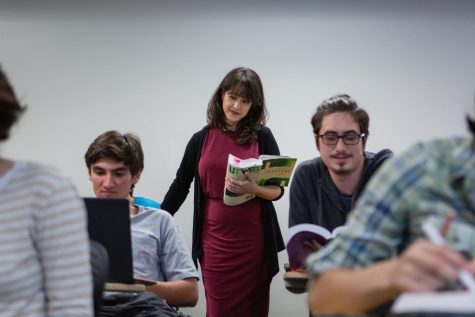
“I think it’s made me a more flexible educator. I think it’s made me more just kind of lenient, generally gentle, and understanding. Usually, I try to be compassionate, but at the same time, try to also uphold standards and make sure students are learning and, you know, their grandfather hasn’t died for the fifth time,” Dieppa said.
Dr. Jordan Von Cannon, an assistant professor in the Department of Language and Literature at FGCU and Dieppa’s close friend since 2017 takes special note of her compassion in and out of the classroom.
“She’s wonderful about not creating a space where there’s any kind of judgment, but just being available and supportive,” Dr. Von Cannon said. “I think that it’s very, very rare, especially the further you get into your career that you find colleagues that are great as colleagues, but also people that you would want to spend time with outside of work.”
To Dieppa, literature holds power: the power of empathy, expression, and a deeper understanding of culture and humanity. All things she hopes seeps through to students through her teaching and atmosphere of her classroom.

